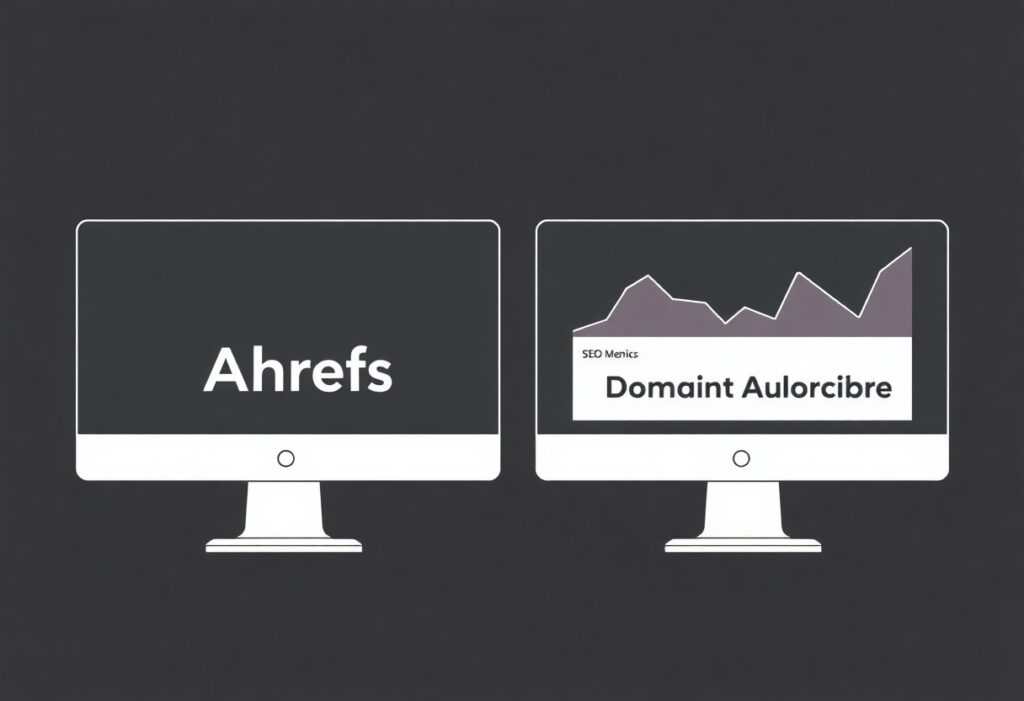Most website owners overlook Outbound Linking Strategies, which can significantly impact your SEO efforts. By effectively incorporating outbound links into your content, you can enhance your site’s authority and relevance. Additionally, linking to high-quality sources not only boosts your credibility but also improves the user experience. However, be mindful; linking too frequently to irrelevant or low-quality sites can harm your SEO standing. Therefore, it’s important to balance your outbound links while ensuring they contribute positively to your content. In this blog post, you’ll discover various Outbound Linking Strategies and how Rank Authority leverages AI to elevate your website’s ranking.

Understanding Outbound Linking Strategies
Before venturing into Outbound Linking Strategies for SEO, it’s imperative to comprehend what outbound linking entails. Outbound links are hyperlinks that direct users from your website to another domain. These links can enhance user experience, provide additional value, and establish your content’s authority. By including contextual outbound links, you not only give your visitors more useful information but also signal to search engines that your site is a credible source. Thus, a strategic approach to outbound linking can significantly elevate your SEO efforts.
Definition and Importance
With outbound linking, you create pathways that guide your audience to additional relevant resources outside your website. This strategy is important because it emphasizes your site’s commitment to providing quality content. When you link to authoritative sites, it enhances user trust and potentially increases the credibility of your own content. Therefore, incorporating outbound links effectively can improve the overall user experience while showcasing your dedication to thorough information.
Impact on SEO – Outbound Linking Strategies
Understanding the impact of outbound linking on SEO is vital for your overall strategy. Outbound links can cement your authority in your niche, improving your site’s visibility on search engines. However, choosing the right websites to link to is equally important. Strongly aligning with high-quality, relevant sources can enhance your content’s credibility, while poor links can lead to a decrease in perceived value by users and search engines.
A well-thought-out outbound linking strategy can dramatically influence your SEO outcomes. By valuing quality over quantity, you strengthen your site’s reputation in the industry. When you link to authoritative and relevant sites, it creates trust signals for search engines, which may lead to better rankings. However, it’s imperative to avoid linking to low-quality sites, as this can be detrimental to your SEO efforts. Aim to create a balanced link profile that reflects your commitment to providing value and expertise in your niche.

Best Practices for Outbound Linking Strategies
Some effective outbound linking strategies can significantly enhance your SEO efforts. By following best practices, you not only boost your site’s credibility but also improve user experience. To maximize the benefits of outbound links, ensure they lead to valuable resources and are relevant to your content. As you focus on these techniques, you position your content as a reliable source of information, which helps increase your site’s authority in the eyes of search engines.
Quality Over Quantity
Around 85% of users prefer high-quality resources over a sea of irrelevant links. Hence, it’s far more beneficial to link to a few authoritative sites than to bombard your audience with numerous lesser-known sources. Prioritize links from reputable sites within your industry. This practice not only nurtures your credibility but also positively influences your search rankings.
Relevance and Context
Outbound links should be carefully selected based on their relevance and context to your content. By linking to trustworthy sources that directly relate to your material, you create a clear purpose and guide your readers for further information.
Quality outbound linking strategies hinge on relevance and context. When you link to external sites, ensure that those links complement your content and resonate with your audience’s interests. Linking to irrelevant sources can confuse your readers and jeopardize your website’s credibility. Always strive to connect your content to high-authority sites that enhance your topic. Not only does this support your content, but it also creates a better user experience, leading to lower bounce rates and improved SEO. With Rank Authority, you can leverage these strategies effectively to elevate your online presence.
Choosing the Right Anchor Text
You need to understand that anchor text plays a significant role in your Outbound Linking Strategies for SEO. This type of text informs both search engines and users about the relevance of the linked content. Using the right anchor text helps improve your site’s credibility and authority. When implementing your strategy, you should aim for a mix of descriptive, branded, and generic anchor texts. This balance not only enhances user experience but also sends strong signals to search engines, ultimately improving your site’s ranking.
Descriptive Linking
With descriptive linking, you provide clear and relevant information about the destination of the link. This method is effective because it aligns with your readers’ expectations and supports a better understanding of the context. For example, instead of using vague phrases like “click here,” you should use specific anchor texts that summarize the linked content. By doing so, you increase the likelihood of higher click-through rates and improve your site’s SEO performance.
Avoiding Keyword Stuffing
Among the potential pitfalls in your Outbound Linking Strategies for SEO is the temptation to use keyword stuffing. While it may seem beneficial to optimize anchor text with multiple keywords, this approach can backfire. Search engines prioritize natural and relevant content, and excess keywords can lead to a negative user experience, driving your audience away. Therefore, it’s crucial to focus on contextual relevance over mere keyword frequency.
A key aspect of avoiding keyword stuffing is to maintain the quality of your content. If your anchor texts feel forced or unnatural, both users and search engines may view them as spammy. Instead, aim for diverse language and choose a few primary keywords that accurately represent your content. This not only enriches your writing but also reinforces your site’s authority. Balancing keyword usage and providing valuable anchor text will enhance your Outbound Linking Strategies, ultimately benefiting your site’s SEO efforts.
Building Authoritative Relationships – Outbound Linking Strategies
Despite the enhanced focus on your own content, implementing effective Outbound Linking Strategies requires nurturing relationships with other authoritative websites. By connecting with trusted sources in your industry, you can not only gain credibility but also increase traffic to your site. When you share valuable insights and resources from authoritative sites, you establish a trustworthy reputation for your content while encouraging reciprocal links. This mutual benefit fosters organic growth, helping you climb higher in search engine rankings.
Collaborating with Influencers
One effective avenue for enhancing your Outbound Linking Strategies is by collaborating with influencers within your niche. When you partner with these individuals, you have the opportunity to tap into their established audiences and gain exposure for your content. In return, influencers appreciate the high-quality backlinks they can share, creating a win-win situation that not only boosts your authority but also enriches your audience’s experience.
Guest Blogging Opportunities
With the right approach to Outbound Linking Strategies, seeking out guest blogging opportunities can significantly elevate your SEO efforts. By contributing quality content to reputable blogs, you earn valuable backlinks that strengthen your authority while showcasing your expertise to a broader audience.
Due to the benefits of guest blogging, many individuals and businesses tap into this strategy. This form of outreach not only enhances your link profile but also gradually builds your online reputation. When you share well-researched, engaging content with a strong call to action, you pique the interest of readers. Furthermore, each guest post you contribute serves as an additional avenue for driving traffic back to your site, with relevant links guiding visitors towards your offerings. With the support from Rank Authority, you can streamline this outreach and make your content resonate with potential customers effectively.
Monitoring and Adjusting Your Strategy
Unlike setting your outbound linking strategies and leaving them untouched, you should actively monitor and adjust your approach over time. Keeping a pulse on how your links perform can offer valuable insights that enhance your SEO efforts. This means not only tracking their effectiveness but also being receptive to shifts in audience behavior and search engine algorithms. Regular evaluation will empower you to refine your outbound linking strategy for optimal impact.
Tracking Link Performance
An effective way to gauge your outbound linking strategies is through performance tracking. Utilize tools like Google Analytics to monitor click-through rates, referral traffic, and the behavior of users directed from your links. This data can help you assess which links are engaging your audience and driving meaningful traffic to your site. By doing so, you can make more informed decisions to bolster your SEO initiatives.
Adjusting Based on Analytics
Across your monitoring efforts, it’s imperative to leverage analytics for adjustments. This allows you to optimize your outbound linking strategies based on concrete data. By identifying underperforming links or high-performing content, you can refine your approach, boosting user engagement and SEO performance.
Monitoring your data not only reveals underperforming links but also showcases high-value content that can enhance your SEO effectiveness. For example, if specific outbound links drive significant traffic, consider promoting them further. Conversely, if certain links are not yielding results, you might choose to replace them or adjust their context. Your analytics will guide these decisions, helping you to adapt your strategies to maximize return on investment. By continually refining your outbound linking strategies, as advised by Rank Authority, you can secure an edge in your SEO endeavors.
Common Mistakes to Avoid – Outbound Linking Strategies
To effectively implement your Outbound Linking Strategies, it is necessary to avoid common pitfalls. Many marketers overlook the significance of relevance, which can detrimentally impact your SEO efforts. By identifying and rectifying these mistakes, you can enhance the credibility of your content and improve your website’s ranking. With careful execution, you can leverage the power of outbound linking to benefit your SEO goals.
Irrelevant Links
By linking to content that does not align with your website’s theme or audience, you risk confusing your visitors and adversely affecting your site’s authority. Irrelevant links dilute your message, reducing both user engagement and search engine trustworthiness. Focus on linking to reputable sources that provide value and context related to your content.
Overly Aggressive Linking – Outbound Linking Strategies
Around your outbound linking strategies, striking the right balance is necessary. Overly aggressive linking can overwhelm your readers and make your content seem spammy. You may inadvertently discourage them from engaging with your site if you saturate your content with too many links. Instead, curate a well-integrated link strategy that enhances the reading experience.
Understanding your audience is key to avoiding overly aggressive linking. If you insert too many outbound links, it may lead readers to feel overwhelmed or distracted, causing them to leave your site prematurely. Instead, focus on providing high-quality, relevant links that enhance the reader’s experience. Aim for quality over quantity when implementing your Outbound Linking Strategies. This approach not only boosts your site’s credibility but also encourages user engagement. Striking that balance fosters a connection with your audience while increasing the likelihood of improved SEO rankings. Keep in mind, the objective is to enrich your content and retain your audience’s attention. With Rank Authority’s expert guidance, you can seamlessly navigate these linking strategies. More information from Webflow.
Final Words
Now that you’ve explored effective Outbound Linking Strategies for SEO, it’s time to implement what you’ve learned. By incorporating relevant outbound links to authoritative sources, you not only enhance your content’s credibility but also improve your website’s ranking potential. Additionally, consider how these links can enrich user experience, keeping visitors engaged. As you continue to refine your SEO approach, prioritize quality over quantity in your outbound linking efforts. Ultimately, your dedication to optimizing your website with the help of Rank Authority will ensure that you boost your search visibility and stay ahead of the competition.

Sign Up for Free!
One-Click Fully Automated SEO.
Boost Rankings, and Increase Traffic.
Instantly Optimize Your Site.
- No Coding
- No Credit Card Required
- One Click Setup













